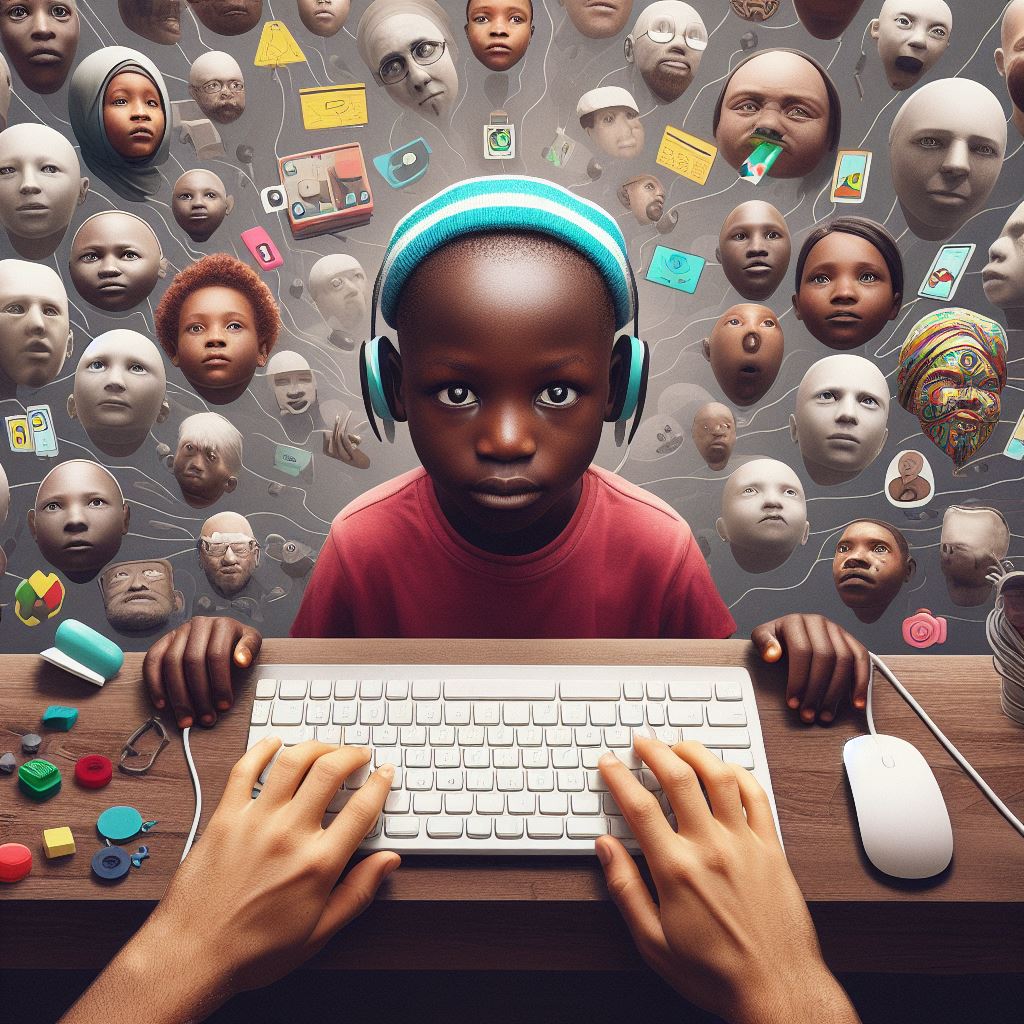Getting Kids Started with Coding: A Nigerian Perspective
Last Updated on October 10, 2023
Introduction
In today’s digital age, coding plays a crucial role in shaping the technological landscape. It is the language that powers our devices, applications, and websites.
Thus, understanding coding has become increasingly important for children.
Introducing kids to coding at an early age is essential for various reasons. Firstly, it enhances problem-solving and critical thinking skills.
Coding encourages children to break complex problems into manageable steps and find creative solutions. It also fosters logical reasoning and improves computational thinking abilities.
Looking at it from the Nigerian perspective, teaching coding to children brings several potential benefits. Nigeria is a country with a thriving technology industry and a growing digital economy.
By exposing Nigerian children to coding, we can open up a world of opportunities for them in this field.
It can help bridge the digital divide and equip them with the skills needed for future employment and entrepreneurship.
Furthermore, coding education can contribute to the achievement of Nigeria’s development goals.
It can foster innovation, drive technological advancements, and empower individuals to create solutions to local challenges.
By nurturing a generation of young coders, Nigeria can position itself as a leader in technology and digital transformation.
In summary, coding is a vital skill in today’s digital age, and it is crucial to introduce kids to it at an early age.
Nigerian children stand to benefit greatly from coding education, both individually and as a nation. It is an investment in their future and the future of Nigeria’s technology-driven economy.
Benefits of Teaching Coding to Kids
Teaching coding to kids in Nigeria can have numerous benefits for their overall development. Here are some key advantages:
Enhances problem-solving and critical thinking skills
- Coding empowers kids to tackle complex problems and find innovative solutions.
- They learn how to break down problems into smaller, manageable parts.
- These skills are useful not only in coding but also in everyday life situations.
Develops creativity and fosters innovation
- Coding encourages kids to think outside the box and develop creative solutions.
- They can express their ideas and turn them into reality through coding.
- Children engage in designing and creating their projects, promoting their innovative mindset.
Improves logical reasoning and mathematical abilities
- Coding involves using logic to create sequences and solve problems.
- Children learn to think logically and develop their analytical skills.
- Mathematical concepts are integrated into coding, improving mathematical abilities in a practical and engaging manner.
Enhances digital literacy and future job prospects
- Coding equips kids with a crucial skill set in the digital age.
- They gain a deeper understanding of how technology works.
- With coding skills, children are better prepared for future careers in technology and innovation.
- The demand for coding jobs is increasing globally, providing excellent job prospects.
Overall, teaching coding to kids in Nigeria offers immense benefits that extend beyond just coding itself.
It fosters critical thinking, creativity, and logical reasoning, and prepares children for the future job market.
The earlier children start learning to code, the better equipped they will be to navigate the digital world.
By integrating coding into education, Nigeria can empower its younger generation and ensure their success in an increasingly digital society.
Read: Teaching Kids to Code: Homeschool vs Coding Camps
Challenges of teaching coding to kids in Nigeria
When it comes to teaching coding to kids in Nigeria, there are several challenges that need to be overcome to ensure successful implementation. These challenges include:
Limited access to computers and internet connectivity in some areas
One major hurdle in teaching coding to kids in Nigeria is the limited access to computers and internet connectivity in certain areas.
Without these resources, it becomes difficult for children to learn and practice coding skills.
Lack of awareness and resources
Another challenge is the lack of awareness and resources.
Many parents and guardians are not aware of the importance of coding education and its potential career opportunities. Additionally, there is a lack of teaching materials and qualified instructors.
Cultural bias towards more traditional career paths:
In Nigeria, there is often a cultural bias towards more traditional career paths such as medicine, law, or engineering.
Coding and technology-related careers are relatively new and not widely understood, leading to resistance and scepticism from parents and communities.
Addressing the challenges and promoting coding education for kids
Despite these challenges, steps can be taken to overcome them and promote coding education for kids in Nigeria.
Here’s how:
Government support and investment
The government should invest in improving computer infrastructure and connectivity across the country. This will ensure that children in even remote areas have access to the necessary tools for learning coding.
Creating awareness through campaigns and workshops
Organizations and educational institutions can conduct awareness campaigns and workshops aimed at parents and communities.
These initiatives can highlight the benefits of coding education and showcase the success stories of young Nigerian coders.
Developing localized teaching materials and resources
Efforts should be made to develop teaching materials and resources that are tailored to the Nigerian context.
By incorporating local examples and cultural references, coding education can become more relatable to children and their parents.
Partnering with technology companies and organizations
Collaboration with technology companies and organizations can provide support in the form of mentorship programs, scholarships, and internships.
This will help children gain practical coding experience and demonstrate the value of coding education.
Integrating coding into the school curriculum
One effective way to ensure the widespread adoption of coding education is by integrating it into the school curriculum.
By making coding a core subject, more children will have the opportunity to learn and develop coding skills.
Changing societal perceptions and stereotypes
Efforts should be made to challenge and change societal perceptions and stereotypes regarding career paths.
By highlighting the potential of coding and technology-related careers, parents and communities can become more accepting and supportive.
Generally, while teaching coding to kids in Nigeria may present challenges, it is crucial to address these obstacles in order to prepare the younger generation for a future driven by technology.
By investing in infrastructure, raising awareness, and changing societal perceptions, Nigeria can ensure that its children have the necessary skills to thrive in the digital age.

Initiatives and Organizations Promoting Coding Education for Kids in Nigeria
When it comes to coding education for children in Nigeria, several initiatives and organizations are actively working to create opportunities and inspire the next generation of coders.
These efforts are crucial in a world that is becoming increasingly digitized, and it is important to equip Nigerian children with the necessary skills to thrive in this digital age.
Nigeria Coding Academy: Overview of the Organization’s Mission and Programs
The Nigeria Coding Academy is one notable initiative that is striving to promote coding education for kids in Nigeria.
The organization’s mission is to bridge the digital divide by providing accessible coding education to children from all backgrounds.
The Nigeria Coding Academy offers various programs aimed at different age groups and skill levels.
Their beginner courses introduce children to the basics of coding through fun and interactive activities, while their advanced courses focus on more complex coding concepts and projects.
Through these programs, the Nigeria Coding Academy aims to not only teach children how to code but also foster creativity, critical thinking, problem-solving, and collaboration skills.
Other Notable Initiatives: Government Initiatives and Private Organizations
In addition to the Nigeria Coding Academy, there are several other initiatives and organizations working towards promoting coding education for kids in Nigeria.
One notable government initiative is the Code Lagos project, which seeks to teach coding skills to one million Lagos residents, including children.
The project partners with schools and provides training for teachers to ensure sustainable coding education in the region.
Private organizations like the STEMHub Foundation and Tech Kids Academy also play a significant role in promoting coding education.
They offer coding workshops, summer camps, and after-school programs that expose children to coding and nurture their interest in technology.
Success Stories and the Impact of These Initiatives
These initiatives and organizations have already made a significant impact on the lives of Nigerian children by exposing them to coding and its potential benefits.
For example, many children who have participated in the Nigeria Coding Academy’s programs have gone on to develop their own applications and websites.
They have become young entrepreneurs, using their coding skills to solve real-world problems and create innovative solutions.
Similarly, the Code Lagos project has seen an increase in the number of schools offering coding lessons and an overall improvement in the technological literacy of both students and teachers.
The success stories from STEMHub Foundation and Tech Kids Academy are also inspiring.
Through their programs, children have gained confidence in their ability to code, and many have expressed a desire to pursue careers in technology.
To sum it all, coding education for kids in Nigeria is gaining traction through various initiatives and organizations.
These efforts are essential in preparing Nigerian children for a future dominated by technology.
By equipping them with coding skills, creativity, and critical thinking abilities, we empower them to become the digital leaders of tomorrow.
Read: Girl-Powered: Encouraging Girls to Code in Nigeria
Strategies for Getting Kids Started with Coding in Nigeria
Getting kids started with coding is crucial for their future success in our increasingly digital world.
In Nigeria, there are several effective strategies that can be employed to introduce coding concepts to children from a young age and make it a fun and engaging experience.
Start Early: Introduce Coding Concepts from a Young Age
One effective strategy for getting kids started with coding in Nigeria is to introduce coding concepts from a young age.
By exposing children to coding at an early stage, they can develop an understanding and interest in programming.
This can be achieved through introducing them to coding apps, games, and simple coding challenges that are suitable for their age group.
Make it Fun and Engaging: Utilize Interactive Tools, Games, and Visual Programming Languages
Making coding fun and engaging is crucial for keeping children interested and motivated.
Utilizing interactive tools, games, and visual programming languages can make the learning process enjoyable and exciting.
Educational apps, such as Scratch, Blockly, and Hopscotch, provide a gamified experience that encourages children to explore and experiment with coding concepts.
Localize Coding Education: Incorporate Nigerian Cultural References and Examples
It is important to make coding education relatable to Nigerian children by incorporating local cultural references and examples. By doing so, children can better understand the relevance and applicability of coding in their own lives. Using Nigerian characters, stories, and scenarios in coding lessons can generate a sense of pride and connection to the subject.
Collaborate with Schools and Educational Institutions to Integrate Coding into the Curriculum
An effective way to ensure the widespread adoption of coding education in Nigeria is to collaborate with schools and educational institutions.
By working together, coding can be integrated into the curriculum and become a core part of the educational system.
This can be achieved through teacher training programs, developing coding syllabuses, and providing resources and support for educators.
All in all, getting kids started with coding in Nigeria requires strategic planning and implementation.
By starting early, making it fun and engaging, localizing coding education, and collaborating with schools, we can empower Nigerian children with the skills they need to thrive in a digital future.
Read: 5 Benefits of Early Coding Education in Nigerian Kids
Resources and tools for teaching coding to kids in Nigeria
Teaching kids how to code is becoming increasingly important in today’s digital age.
By introducing coding skills to children at an early age, we can prepare them for future careers in technology and enhance their problem-solving abilities.
In Nigeria, there are various resources and tools available to help kids get started with coding.
Online platforms and apps for learning coding
- Code.org: This online platform offers free coding courses and activities specifically designed for kids.
- Tynker: Tynker is an interactive coding platform that teaches kids coding through game-based puzzles and projects.
- Scratch: Developed by MIT, Scratch allows kids to create interactive stories, games, and animations using coding blocks.
- SoloLearn: SoloLearn provides a mobile app for learning coding languages like Python, JavaScript, and more.
- Khan Academy: Khan Academy offers coding courses for beginners, focusing on computer science fundamentals and JavaScript programming.
Physical coding kits and toys
- Lego Mindstorms: This robotics kit combines the fun of building with Legos and coding to create various robotic models.
- Ozobot: Ozobot is a small robot that kids can program using color codes, introducing them to basic programming concepts.
- Cubetto: Cubetto is a coding toy designed for young children that teaches the basics of programming through a hands-on approach.
- Bitsbox: Bitsbox is a subscription-based service that delivers coding projects and activities to kids every month.
- Arduino: Arduino is an open-source electronic platform that allows kids to build and program interactive projects.
Coding academies and training centres
- Decagon Institute: Decagon Institute offers coding boot camps and training programs for aspiring software developers.
- Codeville Nigeria: Codeville Nigeria provides coding classes for kids and teenagers, focusing on web development and mobile app development.
- The Learning Place NG: The Learning Place NG offers coding courses and workshops for kids, covering various programming languages.
- Andela Learning Community: Andela Learning Community offers remote coding programs for young individuals interested in tech careers.
- Rainbow Academy: Rainbow Academy organizes coding boot camps and coding clubs for kids aged 5 to 18.
These resources and tools provide valuable opportunities for kids in Nigeria to learn coding in a fun and engaging way.
Whether it’s through online platforms, physical coding kits, or coding academies, children can develop their computational thinking skills and creativity.
By mastering coding at an early age, Nigerian kids can become active participants in the growing technology sector and contribute to the country’s digital transformation.
Read: Why Nigeria Needs More Kid Coders: A Closer Look
Conclusion
In conclusion, teaching coding to kids in Nigeria is of utmost importance. It equips them with essential skills for the future and opens up a world of opportunities.
By supporting coding education, parents, educators, and policymakers can contribute to the development of Nigeria’s technological landscape.
It is crucial to recognize the potential benefits that coding education brings, such as enhanced problem-solving abilities, creativity, and innovation.
By encouraging children to learn coding at an early age, we are preparing them for successful careers in the digital age.
We call upon parents, educators, and policymakers to actively support coding education initiatives in Nigeria.
By providing resources, training, and funding, we can ensure that Nigerian children have access to coding education.
Let us inspire others to get involved in promoting coding education for Nigerian children.
Together, we can empower the next generation of Nigerian coders, fostering technological advancements and driving economic growth.


